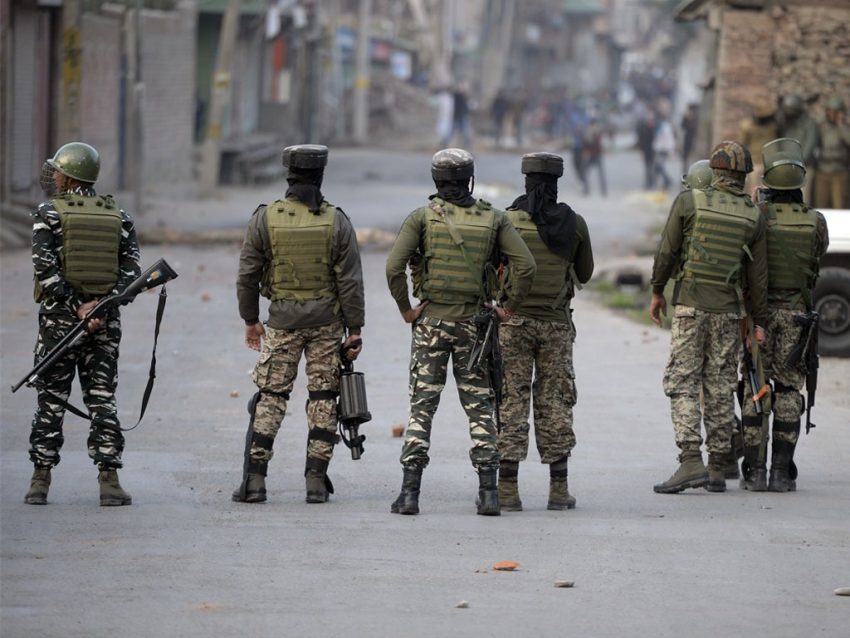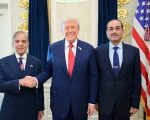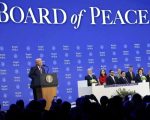Watching what’s happening in South Asia lately brings back that heavy feeling I know too well. It’s a knot of deep concern tangled up with sheer exhaustion. Of course, reading about violence against civilians anywhere is sickening, plain and simple. But what gets me, what feels so frustratingly familiar, is how fast India blames Pakistan – almost before we even know what really went down. That knee-jerk accusation, before any real facts can possibly emerge. Frankly, this predictability is disheartening. It feels like a well-worn path, one that consistently steers away from confronting the difficult, persistent realities simmering within the territory India itself controls.
Time and again, I, like many others observing the region, have witnessed this pattern. An incident erupts in IOJK – a region burdened by decades of suppressed aspirations and unresolved political status – and almost as a reflex, official narratives from New Delhi pivot towards alleged external interference. When India’s Foreign Secretary speaks of supposed “cross-border linkages” without offering concrete, verifiable proof, it strikes me less as a presentation of findings and more as the opening act of a political performance. It seems designed, primarily, to externalize internal difficulties and galvanize nationalist sentiment, rather than to genuinely uncover truth.
The key thing that seems consistently overlooked in India’s approach is seeing the people behind the politics. There doesn’t seem to be a willingness to look beyond the security angle and truly acknowledge the deeply felt political hopes and grievances of Kashmiris themselves. This deliberate myopia allows the root causes of the unrest to fester. The extensive military presence, the documented accounts of harsh suppression tactics, and the palpable climate of fear enforced by Indian authorities – these haven’t brought peace or stability. If anything, they have demonstrably backfired, breeding deeper alienation and resentment. It is this very environment, created and sustained by India’s own policies, that seems conveniently sidestepped whenever tragedy strikes. We have even heard voices from within IOJK, including families affected by past violence, questioning the official stories and the actions of the security forces. Yet, the simpler narrative of an external enemy appears persistently preferable to introspection.
This tendency extends, I believe, to how resistance is framed. It also strikes me as misleading when India insists these newer resistance groups, like the NRF, are simply fronts for older ones like Lashkar-e-Taiba. That narrative conveniently sidesteps a crucial reality we all know here: you can’t separate today’s resistance from the shockwaves of August 2019. India suddenly tearing up Article 370 wasn’t just changing a law; it felt deeply personal, like a betrayal. It wasn’t just taking away some autonomy; it felt like ignoring international agreements (those UN resolutions) and breaking solemn promises made directly to the Kashmiri people. This action tore at the fabric of their identity and rights, inflicting a deep collective wound. To dismiss the resistance that subsequently intensified purely as externally sponsored terrorism, rather than acknowledging it, at least partially, as a deeply human, albeit tragically violent in manifestation, response to perceived illegal actions and broken faith, seems intellectually disingenuous to me.
The subsequent signals from the Indian government – suggestions of suspending the vital Indus Waters Treaty (IWT), further downgrading diplomatic ties, closing the Attari border – feel like a deeply worrying escalation based on these shaky foundations. These do not appear to be the actions of a responsible power genuinely seeking facts and regional stability. They feel more like attempts to perhaps manufacture a larger crisis, potentially distracting from the undeniable challenges within IOJK and, indeed, growing societal fissures within India itself.
Let’s be absolutely clear about this Indus Waters Treaty situation, because the implications are genuinely terrifying. The very notion that India might unilaterally suspend or walk away from this agreement, brokered with such painstaking effort by the World Bank back in 1960, beggars belief. It displays a concerning disregard for international law and historical precedent.
This treaty isn’t just a piece of paper between two countries; it carries international guarantees and has weathered multiple wars precisely because it serves as a critical bulwark against conflict over essential water resources. As our Federal Minister for Water Resources, Mian Moin Wattoo, correctly highlighted, international organizations are party to this treaty. The idea of using water as a weapon? It feels like something out of a nightmare, frankly. To actually do that would ignore basic rules everyone respects, and it would be such an aggressive act. The consequences could be catastrophic, especially for people downriver, like in Sindh, where water is already such a precious, often scarce, thing.
Taking that step seems almost unthinkable, doesn’t it? It wouldn’t just create turmoil for everyone; it’s almost certain that India would feel the painful ripple effects itself.
It truly feels as though we are witnessing a familiar, cynical playbook: generate a crisis, cast oneself as the victim to garner international sympathy, and hope the world averts its gaze from the profound internal issues – such as the troubling rise of Hindutva ideology and extremist actions targeting minority communities – that genuinely threaten India’s own internal harmony. But I suspect the world is becoming increasingly weary of these dynamics. The veneer is wearing thin.
Allegations of terrorism and claims of cross-border actions against Pakistan have often dissolved under closer, independent scrutiny in the past. Pakistan’s position, meanwhile, remains constant. We seek peace and neighbourly relations, but this desire should never be mistaken for weakness or an acceptance of baseless accusations. We stand unjustly accused in this instance. Our commitment to our sovereignty and our rights under international law is absolute. Our forces maintain unwavering vigilance. Any provocation, any attempt to infringe upon our territory or vital interests, like those guaranteed under the IWT, will undoubtedly be met with the firm and fitting resolve that our history demonstrates.
It is long past time for India to look inward, to move beyond the prism of force and security in IOJK. Real, lasting peace in Kashmir won’t ever come through military control or by stripping away the rights and identity that matter so much to people there. That just pushes people further away. What’s truly needed is a willingness to engage – to truly hear the aspirations coming from the Kashmiri people themselves. It means taking seriously the international commitments already made (like the UN resolutions) and having the courage to actually talk, sincerely, person to person, about the way forward.
As Pakistan’s National Security Committee convenes, I trust our response will be measured, principled, and rooted firmly in international law and our national interest. India must step back from this precipice. It needs to abandon the dangerous illusion that its will can be imposed through coercion or that vital regional stability mechanisms like the IWT can be torn down with impunity. True security lies in justly addressing the core issue of Kashmir and managing its own complex internal dynamics, not in reckless gambles that endanger us all.














